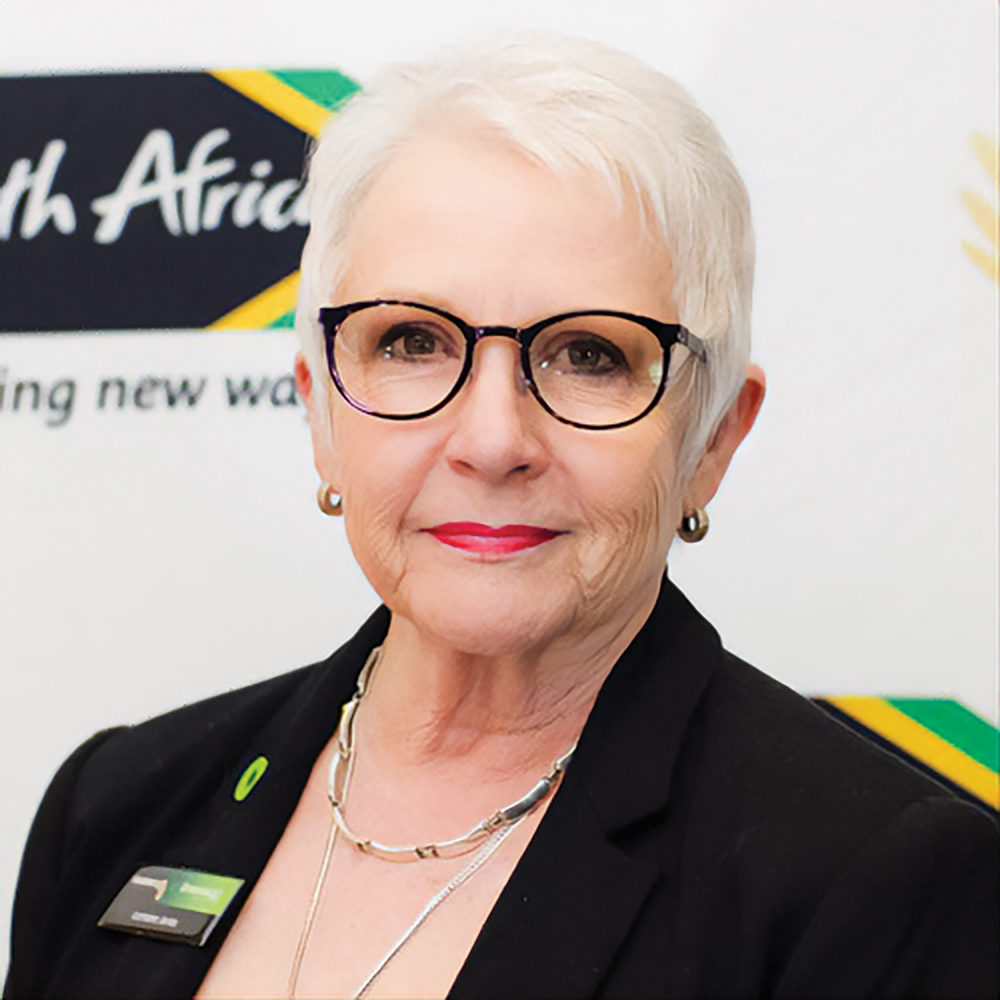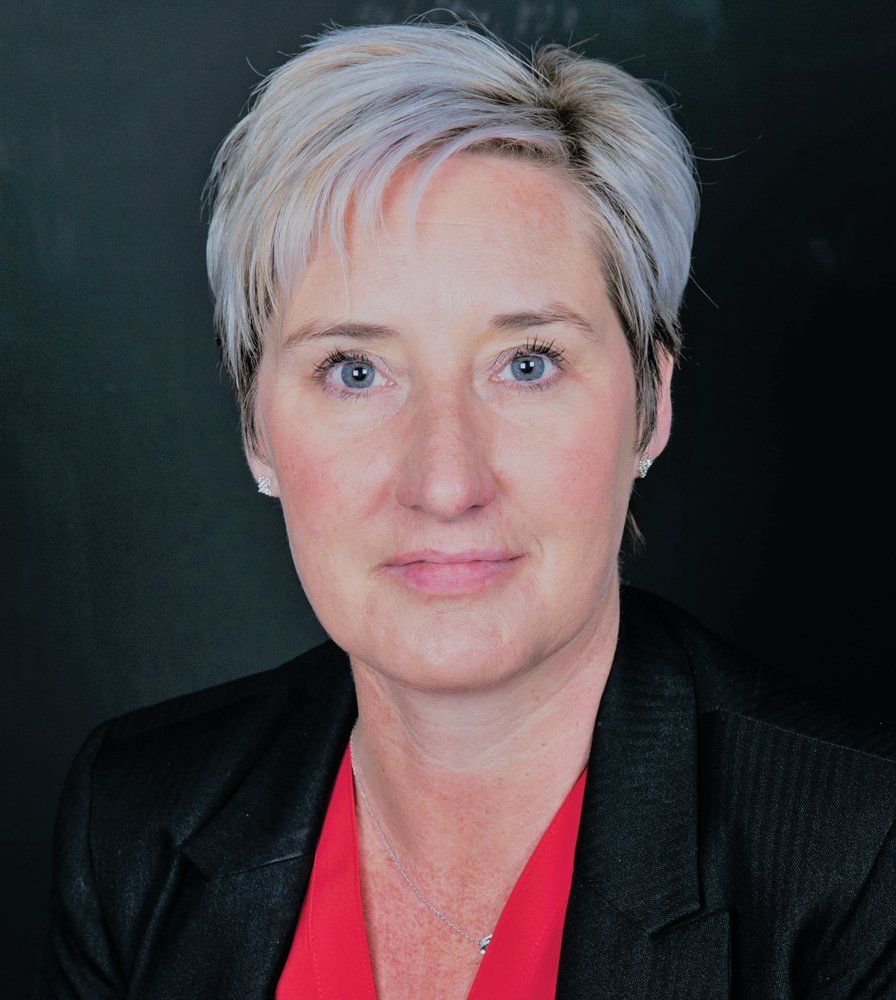Let’s hear it for the ladies! Part 2
Let’s hear it for the ladies! Part 2
The transport and logistics game never used to be populated by members of the fairer sex. However, this has changed. CHARLEEN CLARKE pays tribute to some of the leading ladies in the transport and logistics industry and the trailblazers in supply chain management.
Lorraine Jenks, speaker, sustainability facilitator and founder/CEO of Hotelstuff/Greenstuff
Jenks has had a fascinating ride in the world of supply chain management (SCM) – not that it was obvious that she would end up in this industry. After all, before joining the SCM profession, she was a teacher with additional Montessori qualifications, a traveller to remote regions, a hippie, a constant student, a researcher … and she worked in a variety of fields in four countries. “SCM was not my dream. I didn’t even know there was such a thing! However, the universe puts you in places you never planned!” she notes with a big smile.
For 15 years, this enterprising businesswoman held the position of contracts and purchasing manager for a major international hotel chain with 82 hotels in Africa. Then came her lightbulb moment. “Having the power to choose suppliers gave me the ideal opportunity to encourage the use of ‘greener’ products. After 15 years of trying to inspire change in hotels, I resigned and launched the first online directories for hospitality products – like the Yellow Pages – to share with anyone. There is no commission or fee charged for sales via the websites. Hotelstuff.co.za lists products from my old purchasing manual (now, 21 years later, used by every industry, not only hotels) and Greenstuff.co.za lists only the eco-friendly products on the master website,” she explains. These now get used by up to 33 000 buyers from all sectors across Africa every month and have won multiple awards.
Jenks reveals that, in what she describes as a moment of madness, in collaboration with her bookkeeper, she decided to let hoteliers see, touch and feel “what we were banging on about”. “We booked a 100 m2 stand at the Hostex Trade Show and invited suppliers listed on Greenstuff to send products for us to display and demonstrate in order to educate the public on sustainability and conscious procurement. We had numerous people offering to help us set up something we had never done before, free of charge… a fully furnished mock hotel… using the ‘greenest’ products we could find throughout.”
From this came invitations to build similar projects – houses and hotels – at South Africa’s leading exhibitions. From that came invitations for her to speak on responsible tourism, green hospitality, climate change, circularity, sustainable procurement and supply chain and ethical food.
In 10 years, she has won 20 awards and honours – all thanks to the incredible range and depth of experience doing SCM and amateur lifecycle assessments for all products used in a hotel.

Today Jenks is responsible for finding and supporting manufacturers of products eligible for the websites. “We give huge subscription discounts, and even freebies to start-ups and entrepreneurs, and encourage local production. Nothing is 100% green so I support any manufacturer who is doing as much as they can to create sustainable products, and everyone we’ve dealt with over the years has improved their eco-credentials exponentially as they progress,” she explains.
Then there is her utter astonishment at the recognition for her work. “I have given a TEDx talk, been invited to speak around the world, and also consulted, trained and built exhibition projects to promote the green suppliers on Greenstuff.”
Jenks believes that there has been a phenomenal change in SCM recently. “The pandemic forced managers to understand every level of supply and prepare for unexpected disruptions. It gave buyers time to research alternative products and services. It also gave people time to read, learn and develop new values,” she notes.
She believes that more women are needed in SCM. “Women are more sensitive to damage being done to the environment; toxic contamination to the atmosphere, soil and water; abuse of animals; and the tragedy of child and slave labour. They’re better at instinctively recognising green-washing and window-dressing.
“Women are better at looking ahead for the sake of their children and demanding a safer future. Women have built-in ‘antennae’ and see beyond the obvious; often able to sense multiple causes and harmful impacts simultaneously – then having the courage to act,” she points out.
Any advice for young women thinking about a career in SCM? “Yes! Become a specialist and an expert in sustainable procurement and SCM. (Call me and I’ll run a short course for you.) Study, research and read everything you can find – the climate and ecosystem issues evolve every day. Learn all the jargon and the acronyms. Understand SDGs, ESG, GHGs… Know the meanings of labels… greening, responsible, conscious, sustainable, circular, regenerative, restorative.
“Make friends with the manufacturers and visit their facilities. Never take no for an answer. There should be no plastic. Nada. Zat. Recycling is a hoax. If they can send a man to the moon, they can jolly well invent an eco-friendly alternative.”
She warns young women that their mission will become their calling. “It will be fun or infuriating, even addictive. But your sustainability journey will be the most rewarding work you have ever done. Let it be your legacy,” she urges.
Tonya Lamb, business development executive at SAPICS
Lamb has spent her entire working life in SCM. “I started in transport management, went to freight forwarding and then moved into the planning department of a motor component manufacturer. When I started my career, I didn’t have a plan about where I wanted to be, but I’m very happy with how things have turned out. My career moved towards SCM education and skills development, which is something that I thoroughly enjoyed and became passionate about. Since then, I have had the privilege of working on the professionalisation of SCM,” she recalls.
Things were very different when she kickstarted her career. “I think that the landscape has expanded. Back then, it was very much around production and inventory management. SCM in its entirety is an incredibly diverse and complex profession. There is a lot more of an understanding and appreciation for the profession compared to when I first started out. There is, however, still a great deal of work to be done in educating people about SCM,” she believes.

Lamb has been gratified to see an increase in the number of women in SCM. “The industry is more accepting of women in leadership positions today, compared to 20 years ago. Just look at the number of women that SAPICS has as members, and our board and committee directorship. This is a good indication of the growth. In the 1990s, if you found 20 women at a SAPICS conference, it was a lot. Now we are seeing women heading up supply chain roles in leading organisations.”
Her core functions at SAPICS are business development and stakeholder engagement, and she’s optimistic about the future of the supply chain landscape. “Coming out of the pandemic, SCM will be changed forever as organisations rebuild, redesign and restructure to equip themselves for the future. As a result of the pandemic, there has been a surge in the adoption of IT, and this will continue. Skills gaps have become evident, as has the need to reskill to meet the changing pace of the profession.”
Going forward, she would like to see more women in the supply chain industry. “Although the profession has seen a massive growth of women, there is still room for improvement.”
She encourages women to consider the opportunities afforded by the profession. “SCM offers so much opportunity, due to its diversity and complexity. As a profession that is represented in every industry, private and public sector, the opportunities are immense. Because it’s so fast-paced and is forever changing you will always be learning something new, and you never need to worry about boredom. People improve supply chains and supply chains improve the economy and the economy changes lives. The supply chain profession provides opportunities to make a difference every day in everything from sustainability to localisation of products,” she says.
Published by
Charleen Clarke
focusmagsa




